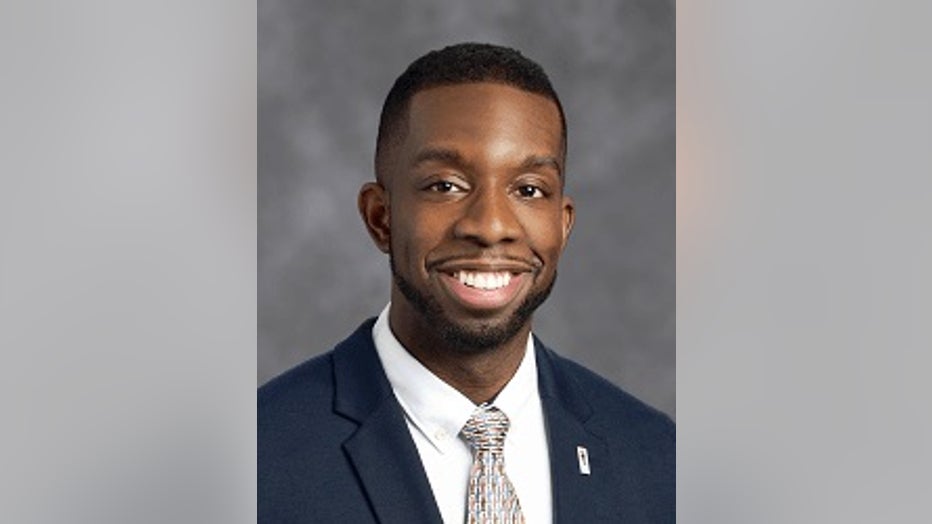Gwinnett education official: Debate over critical race theory 'manufactured outrage'
Georgia board of education passes resolution on race
The resolution outlining the teaching of racism in classrooms throughout the state.
GWINNETT COUNTY, Ga. - The chairman of the Gwinnett County Board of Education is pushing back against the recent county and state efforts to limit the discussion of race in Georgia classrooms.
In a letter posted on Facebook, Chairman Everton Blair Jr. said that officials pushing to restrict how critical race theory is taught in schools is were "manufacturing outrage around a problem that isn't even present, over a concept that most of us haven't even understood."
Blair's response comes hours after Georgia's Board of Education adopted a resolution in a special session stating in part that the board believes "no state education agency, school district, or school shall teach, or instruct" concepts regarding race in the classroom that make "an individual feel discomfort, guilt, anguish, or any other form of psychological distress on account of his or her race or sex."
But the chairman said the debate was confusing to him "as there is already nothing remotely racially critical in Georgia's social studies or history curriculum."

Everton Blair Jr. (Gwinnett County Board of Education)
LEARN MORE: What is critical race theory, and why is it causing controversy?
"To be candid, America is a country with an undoubtedly inextricable history of racism. Because of this fact, vestiges of our racially discriminatory past show up across discrepancies in economic security, healthcare, educational access and more," Blair said. "And I get it, we're very ashamed. We don't want our children to feel bad for things that they did not do. It is also uncomfortable and difficult to reconcile - even for Black Americans."
But he said focusing on the debate over whether the state is or is not racist "misses the educative point" and "centers our pride and desire for exceptionalism instead of contending with the ways in which we can acknowledge past harm and move forward in making things better" and "it affirms the very type of political indoctrination that it seeks to resist."
Blair's comments and the special session comes as the debate over the theory heats up in many Georgia school districts.
At a Cherokee County School Board meeting in May, a decision that teachers would not be allowed to discuss the theory in the classroom elicited thunderous applause from those in the audience, predominantly white, who oppose teaching the theory.
SEE MORE: Georgia Board of Education debates limits on critical race theory, passes resolution
Cobb County School District Superintendent Chris Ragsdale later vowed that it would not be talked about in the classroom so long as it’s not part of "Georgia’s standards."
"As long as I am Superintendent, I will commit to keeping any theory or curriculum, which is not part of Georgia's standards, out of every Cobb County classroom," Ragsdale says.
Gov. Brian Kemp also sent the state board a letter saying calling critical race theory should not be taught in Georgia schools, calling it "divisive and anti-American."
SEE ALSO: Kemp urges Georgia Board of Education to not teach 'Critical Race Theory'
Nationally, at least six Republican-controlled state legislatures have proposed or implemented restrictions on how teachers talk about racial inequality in the classroom. Legislators in Georgia have vowed to introduce similar legislation.
You can read the entire letter from Blair below:
This may be unsettling and stir indignation for some, but we must maintain a standard of comprehensive and complete truth-telling if we want to move forward.
There have been abundant, recent discussions and even adopted resolutions from statewide elected officials regarding the teaching of race in America and the concerns over critical race theory. But it's confusing, as there is already nothing remotely racially critical in Georgia's social studies or history curriculum.
We're manufacturing outrage around a problem that isn't even present, over a concept that most of us haven't even understood.
To be candid, America is a country with an undoubtedly inextricable history of racism. Because of this fact, vestiges of our racially discriminatory past show up across discrepancies in economic security, healthcare, educational access and more. And I get it, we're very ashamed. We don't want our children to feel bad for things that they did not do. It is also uncomfortable and difficult to reconcile - even for Black Americans.
But to preoccupy ourselves with a debate on whether our current state is or is not racist misses the educative point altogether. It also centers our pride and desire for exceptionalism instead of contending with the ways in which we can acknowledge past harm and move forward in making things better. And even more ironically, it affirms the very type of political indoctrination that it seeks to resist.
Masking our fear of confronting the truth by rejecting only the elements of which we are ashamed teaches our children that they can cherry-pick data, falsify evidence and fabricate reality. It further fails to recognize their potential as learners who are capable of complex, intersectional thought. We can do better than that. But we will only do better when we acknowledge where we must improve. And if only we spent a fraction of the time working to address and reckon with our history as we do trying to sanitize or deny intractable aspects of it, perhaps we would get there sooner.
...Interestingly, this is exactly why critical race theory exists.
WATCH: FOX 5 Atlanta live news coverage
_____
Sign up for FOX 5 email alerts
Download the FOX 5 Atlanta app for breaking news and weather alerts.

